Taking part in parent-teacher conferences is an effective way to take an active role in your child’s academic life. These brief meetings a couple times a year allow you to get updates about your child’s progress in the classroom, build a relationship with their teacher, get insights into their skills and challenges, and discover ways to help your child overcome obstacles and achieve success.
But to get the most out of these important meetings, it’s best to prepare yourself with the right parent-teacher meeting questions. Here’s a helpful list of questions to help you prepare for your next meeting.
Discover how GGU School of Law gathered feedback through surveys to enhance their programs. Apply their insights to make your parent-teacher conferences more effective with school forms.
Key questions to ask at a parent-teacher conference
One of the best ways to initiate the parent-teacher conference is to begin by asking the following question:
1. Before we start, can I share some important information about my child?
This question will allow you to share anything that might impact your child’s performance in school that his or her teacher might not otherwise be aware of. This includes things like health concerns, family challenges such as a divorce or the loss of a loved one, or other key issues that would be helpful for the teacher to understand about your child.
We’ve divided other important questions to ask by category below. Depending on how in-depth the teacher’s responses are, you may not get to ask every question here, but if you choose one or two from each category, you’ll be better positioned to help your child navigate the school year with greater ease.
Questions to ask at the beginning of the year
These questions will help you prepare in advance for your child’s school year so everyone — you, your child, and your child’s teacher — can be more successful from day one.
2. What are the most important skills students need to develop this year, and how can I help my child learn them at home?
3. What tests and evaluations will my child take in your class this year?
4. How can I support my child in being more organized and completing homework to the best of their ability?
5. Could you recommend questions I can ask my child to encourage them to share what’s going on in your class and in school overall?
Questions about your child’s academic performance
This area is probably going to be the biggest priority for you as a parent. Asking questions about your child’s academic performance will help you gather insights on how they’re functioning in other areas of the classroom as well. You’ll likely discover what their strengths and weaknesses are and how you can best help them at home.
Here are some questions to ask in this category:
6. What are my child’s strengths and weaknesses in your class?
7. What subjects are they excelling in? What subjects are they struggling with?
8. Does my child turn in homework on time?
9. Does my child participate in classroom assignments and discussions?
10. Is my child reading at the appropriate level for their age and grade?
11. What can I do at home to support my child’s academic progress or address any areas of concern?
Questions about communication and teacher support
Although you’ll have one or two parent-teacher conferences per year, there will be other times throughout the school year when you’ll need to communicate with your child’s teacher. You’ll want to find out the most effective ways to work with the teacher to develop a solid partnership so you can both help your child progress academically.
Here are four questions to ask to discover the most effective way to communicate with and support your child’s teacher:
12. If I need to reach out to you concerning my child, what’s the best contact method (e.g. email, phone, text, etc.)?
13. How can I work with you to make your job easier as you support my child’s growth?
14. Is there anything about your teaching style that would be helpful for me to know, and how can I be consistent with that approach at home?
15. What’s the best way to stay informed about school programs and my child’s performance?
Questions about your child’s emotional and social welfare
While gauging your child’s academic performance is essential, it’s also important to understand how they’re doing emotionally and socially. Since the teacher spends many hours interacting with your child each week, they may be aware of challenges you don’t see at home.
Here are a few questions to ask to find out about your child’s emotional and social well-being:
16. Does my child ever get angry or act out in other ways?
17. Does my child ever become unusually withdrawn?
18. Does my child seem happy?
19. Does my child interact well with their peers?
20. Does my child maintain friendships with others?
21. Does my child interact well with authority figures?
22. Do you have suggestions for what I can do at home to promote healthy behaviors in the classroom?
Questions for the conclusion of the parent-teacher conference
Once you’ve asked questions from the categories above, you may want to finish up the meeting with a few final questions like these:
23. How/when should I follow up with you about my child’s progress?
24. Are there other people we should meet with to understand my child’s academic performance and progress?
25. Do you have any other feedback or concerns about my child?
26. Is there anything I didn’t ask that you think I should know about?
Asking the right questions in a parent-teacher conference can help you both find the most effective strategies to support your child’s academic performance and ensure their success in the classroom.
Create a parent-teacher survey preloaded with these 26 questions.
Jotform resources for education
You may be wondering if you’re required to have in-person parent-teacher conferences. While that may be the ideal scenario, it’s not always convenient. To make participation easier for both you and the teacher, you may consider conducting your meeting online. Learn more here about how to hold virtual parent-teacher meetings on Zoom.
Jotform can even automate this virtual meeting process through our features and tools, including our parent survey maker. This convenient tool allows teachers to choose a ready-made template and customize it with our drag-and-drop form builder — no coding required. Teachers can use Jotform to send questionnaires to gather parents’ questions and concerns via email, making the feedback process more convenient for everyone.
Other key features that are helpful for teachers include drag-and-drop form-building functionality; integrations to connect online forms with other popular third-party apps; and security features including 256-bit SSL encryption, PCI certification, and more.
In addition to our numerous free resources, Jotform has special pricing plans just for educators. Educators receive a 50 percent discount for any paid plan. Our Bronze plan is just $17 per month and includes 25 forms and 1,000 monthly submissions. Our Silver plan is $19.50 per month and includes 50 forms and 2,500 monthly submissions, and our Gold plan is $24.50 per month and includes 100 forms and 5,000 monthly submissions.
For advanced functionality and multi-user support, we also offer a 30 percent discount to educational institutions on Jotform Enterprise. Jotform Enterprise offers all the functionality of other Jotform plans, plus features like single sign-on, administrative control over user accounts, dedicated customer support, and additional security options.










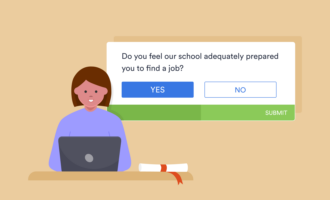










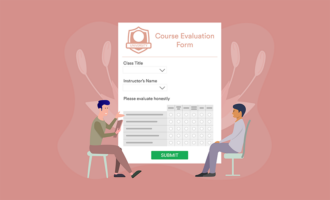















































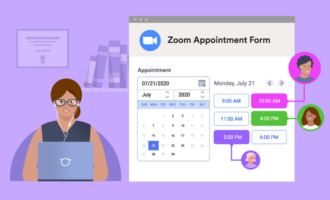










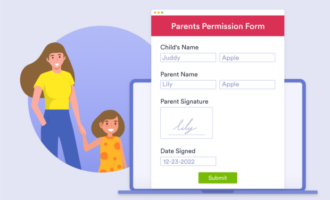
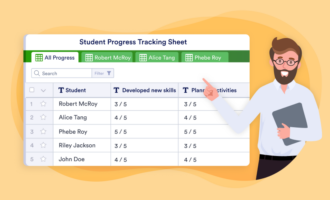










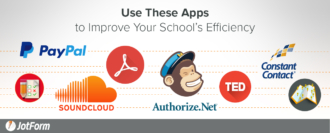





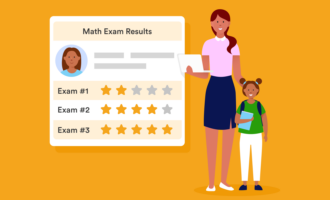

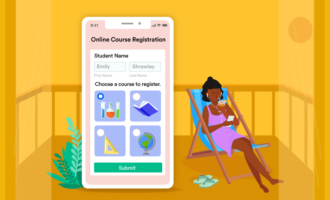


Send Comment: